Arun Sudhaman 30 Aug 2021 // 8:42AM GMT
.jpg)
The 2021 Asia-Pacific Communications Index, a landmark study of Asia-Pacific in-house communications professionals, today reveals that one in three in-house communication directors are more likely to seek a new job in the next 30 days.
Conducted by the Asia-Pacific Association of Communication Directors (APACD) in conjunction with Ruder Finn Asia, the study — which polled more than 120 senior in-house communications executives (including APACD members) across the region — launched last month by reporting renewed confidence among the sector, despite some significant concerns, before revealing concerns over agency effectiveness.
In the latest instalment, PRovoke Media focuses on careers, including insights into job dissatisfaction, remuneration, careers advice and more — much of which will be further examined at the APACD Summit on 16 September.
Job satisfaction
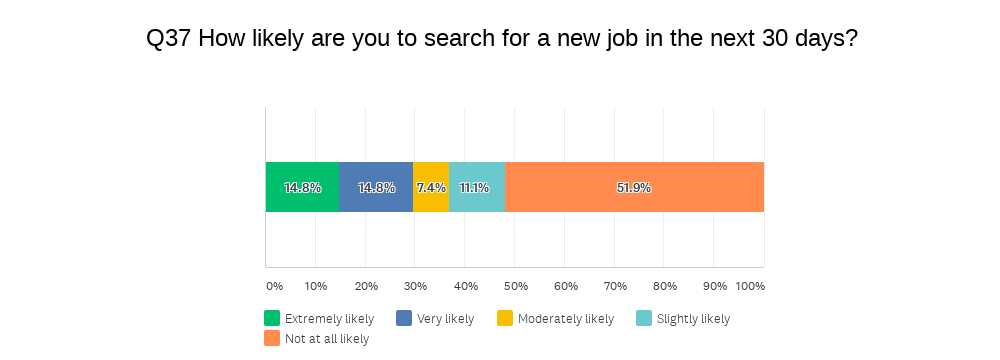
More than a third of respondents report they are moderately likely or more to seek a new job in the next 30 days, with 15% 'extremely likely'. Despite this finding, almost two-thirds (65%) of Asia-Pacific in-house communicators are either 'somewhat' or 'very happy' in their current roles. Only one in six (17%) profess to being unhappy, even if the same proportion is ambivalent.
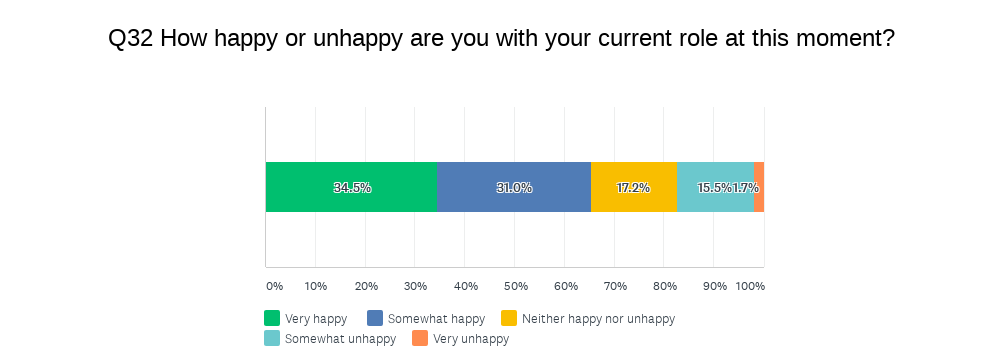
Respondents were asked to list the greatest sources of satisfaction and dissatisfaction with their current roles. "Currently, successful adaptation to the communications environment dictated by Covid," said one. "We have adapted and thrived."
Working with interesting and influential people, and empowering talent, also came up multiple times as a driver of job satisfaction, along with the intellectual stimulation provided by managing multiple issues and stakeholders. Unsurprisingly, many respondents look for "real-world" meaning in their work: "Amazing content to deliver; unique global brand; fantastic team to work with; positive contribution to society."
These factors, though, can also lend themselves to dissatisfaction when they are not adequately prioritised. "Leaders (MDs/CEOs) who do not fully understand the role of comms and are unaware of its potential," cited one respondent regarding sources of job dissatisfaction. "Also, leaders who don't realise that they are not walking the talk — resulting in 'greenwashing' PR."
Indeed, the drivers of job dissatisfaction mentioned most often include an under-appreciation of the communications function's value to the overall business; a lack of staff or resources; work-life balance and politics; and "ridiculous expectations".
Accordingly, when respondents are asked to change one thing about their jobs, "realistic expectations" is a popular choice, along with more resources and support.
“These are fascinating results that show unusual trends from the client side about career mobility," said Ruder Finn Asia EVP Charles Lankester. "The comments regarding understanding of communications amongst senior management are especially concerning and need to be a wake up call.
"We always aim to identify a clear business and communications outcome from all our work, be it increased revenues, sales volumes or share price strengthening," added Lankester. "In my experience, these macro measurements are the key ways to engage senior management and show the real power and value of our work."
Remuneration
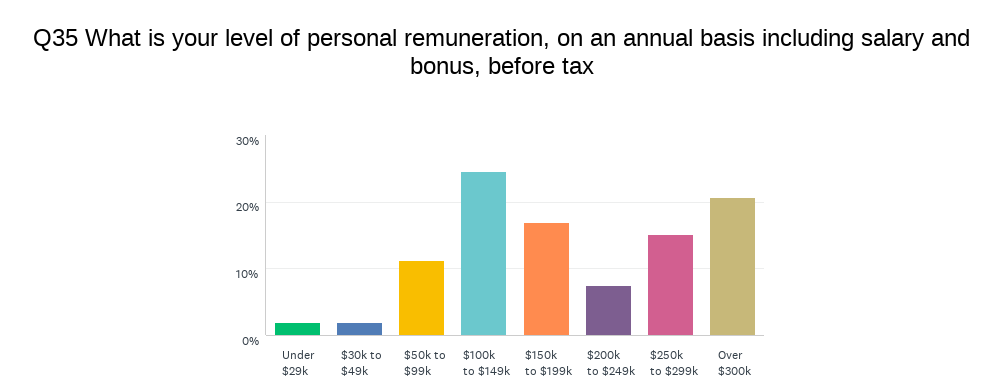
The highest proportion of in-house comms directors (25%) are paid between US$100-149k per year, including salary and bonus. Interestingly, the next highest band is $300k+ (21%), while one in three (36%) earn more than $250k per year.
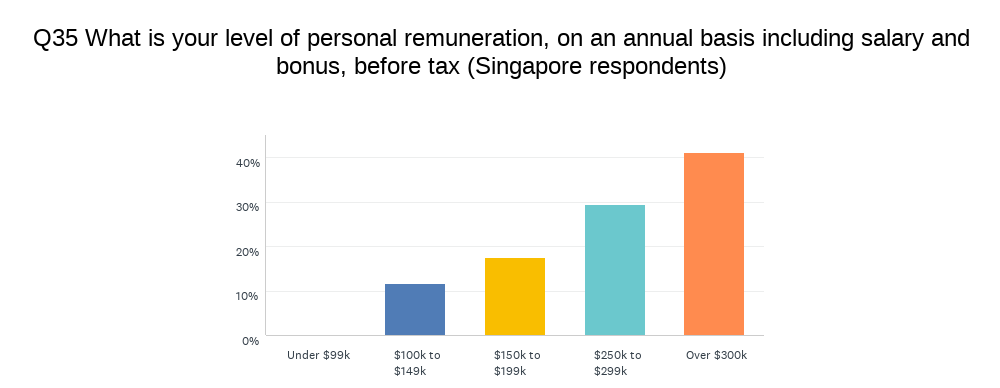
Breaking the results down by region, it becomes clear that the 'higher earners' are largely based in Singapore, where 41% of respondents report earnings of more than $300k, and seven in 10 earn more than $250k. This is likely to reflect the higher proportion of regional communications leadership roles in Singapore, particularly compared to Asia's other traditional corporate hub, Hong Kong.
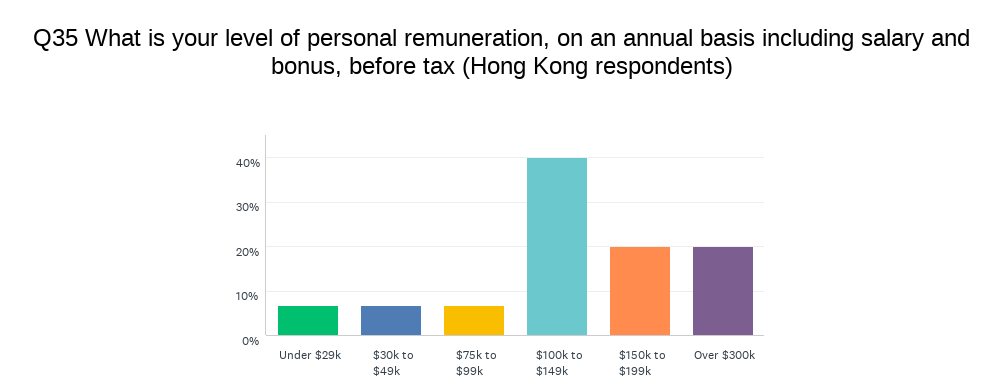
In Hong Kong, 40% earn between $100k-$149k, while one in five earns less than $99k, compared to none in Singapore.
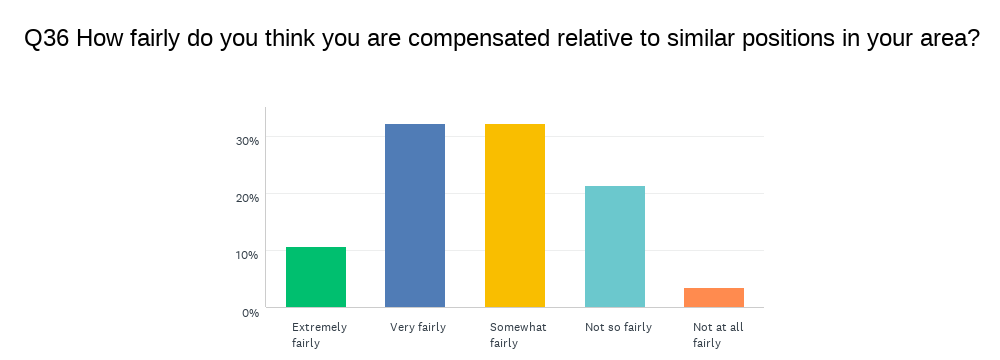
Only one in four respondents (25%), though, believe that they are unfairly compensated. Most think their remuneration is fair, with 43% deeming it 'very' or 'extremely' fair. Of note, 30% of Hong Kong-based comms directors believe their remuneration is unfair, compared to just 12% in Singapore.
Career plans & advice
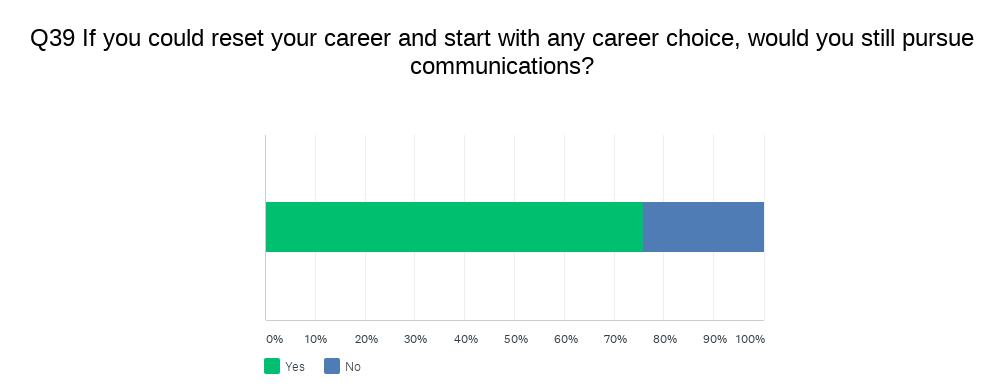
Almost one in four respondents, meanwhile, would not choose communications if they were restarting their careers, a proportion that is considerably higher in Hong Kong (40%) than in Singapore (6%).
And our respondents have plenty of advice to offer young people who are starting their communications careers in 2021, particularly in terms of being curious and open to learning, being willing to work hard, and being a generalist rather than specialising too early.
"Read widely; learn by doing; don't be afraid to fail - learn good foundations for building a successful comms programme - it will be slow at first but will gain momentum quickly if you do it right"
"Be prepared to be flexible and adaptable. Narratives and norms of public communications change so quickly, you need to keep up with digital trends and patterns constantly."
"Try all aspects of comms. be a generalist and master as much as you can. you will be a better communicator for it."
"Always expect the unexpected and be calm in how you deal with it."
"Be prepared to devote 80 percent of your life to your job in the first 15 years."
"Roll up your sleeves and get involved. Don't say no to anything."
"In the early years, do try to get a wide breadth of experience in the whole value chain of communications."
"Understand what drives a business from a financial standpoint. Its difficult to become a trusted advisor if you don't have a baseline understanding of how your company makes money and what drives the value up."
Register now for the APACD Summit on 16 September and 'futureproof your career'!



































.jpg)















